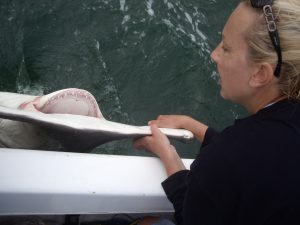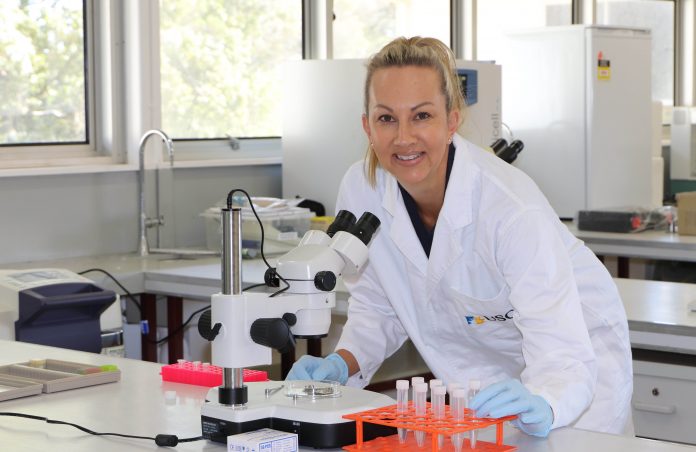A University of the Sunshine Coast study of the great hammerhead shark could help save the critically endangered animal.
Lecturer in Animal Ecology Dr Bonnie Holmes has received a research grant from the Australian Academy of Science to gather detailed information on the ecology and biology of great hammerhead sharks in Southeast Queensland.
She is one of six Australian researchers to be awarded a 2021 Thomas Davies Research Grant, valued at $20,000.
The shark is commercially fished for their valuable fins and was last year listed as critically endangered.
It’s estimated catch rates and size have declined significantly around Australia during the past 50 years.
“More data on its biology, ecology and population structure is critically needed to set appropriate, sustainable harvest levels that could ensure the survival of this species and the health of our coastal ecosystems,” Dr Holmes said.
This two-year study will be the first to assess great hammerhead movements across South East Queensland, with particular focus on Hervey Bay and Moreton Bay.
“From recent research, we now know that great hammerheads are important ecosystem regulators of other sharks and rays, putting them at the top of the marine food chain. Yet there is a critical lack of life history and habitat use data,” Dr Holmes said.
“Given that the species plays a vital influencing role in linking coastal food webs in east coast Australian waters, the ecological impacts caused by declining populations of this top predator can be far-reaching.”
Found in tropical and sub-topical Queensland waters, extending into northern New South Wales during the summer months, the great hammerhead is the largest of all hammerhead species, reaching more than 4.5m in length and living for up to 40 years.

Overfishing is the species’ greatest threat.
“The shark’s oddly shaped head enhances its ability to hunt prey but also makes all sizes of the species, including juveniles, susceptible to becoming entangled in commercial gillnets,” Dr Holmes said.
“It is also vulnerable to being accidentally caught in beach protection programs that target large sharks in both Queensland and New South Wales.”
Dr Holmes will use satellite tags on great hammerhead sharks to track their distribution and movement patterns.
Each time a shark’s fin breaks the water’s surface, the tag will transmit its location.
Tissue samples will also be collected to genetically assess their population structure across region.
“By correlating movements with fishery catch and location data, we can determine their susceptibility to fishing activities, and whether respective marine park management zones in our region afford adequate protection,” Dr Holmes said.
Get more local news direct to your inbox by subscribing to our free daily news feed: Go to SUBSCRIBE at top of this article to register.





